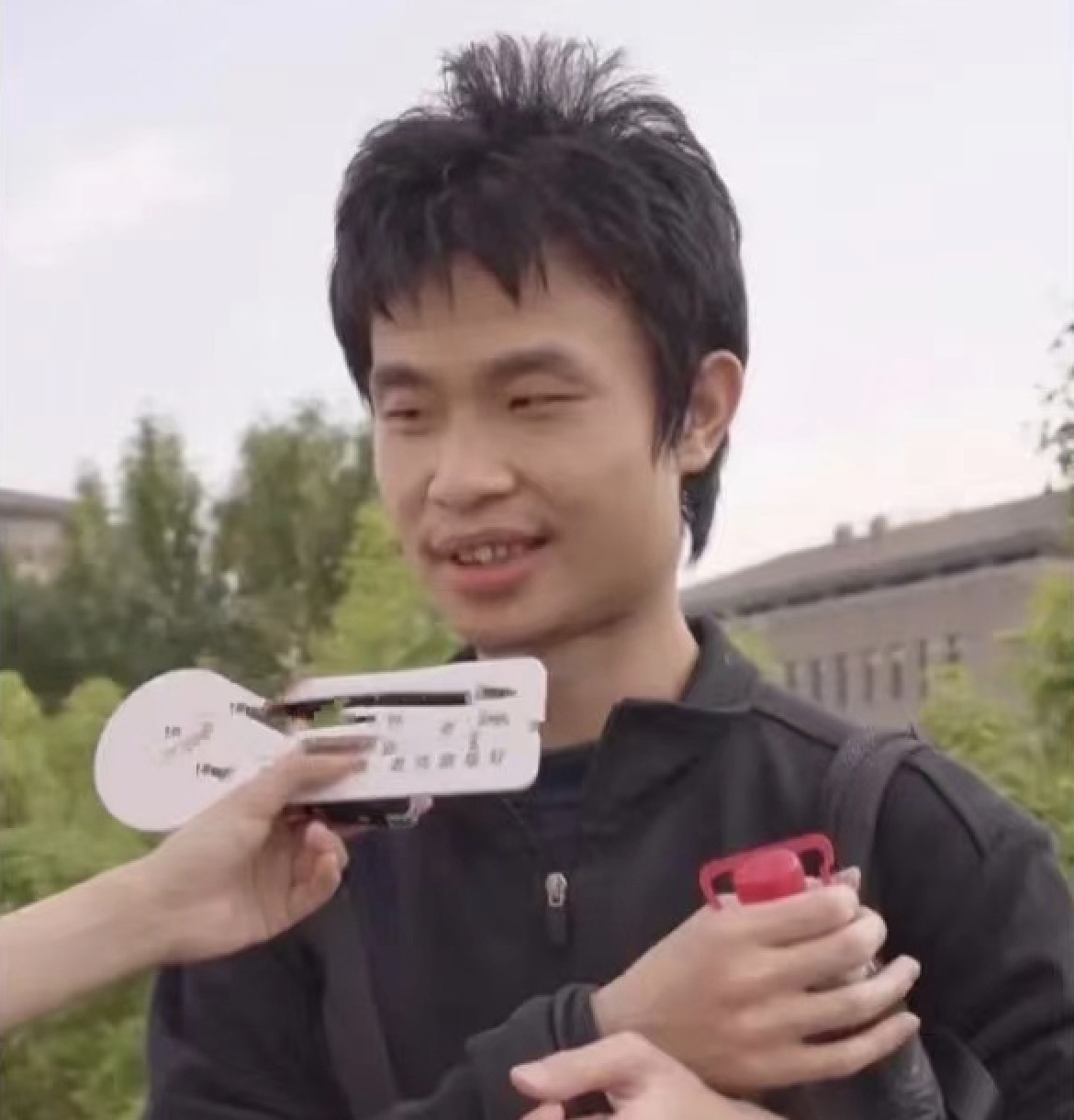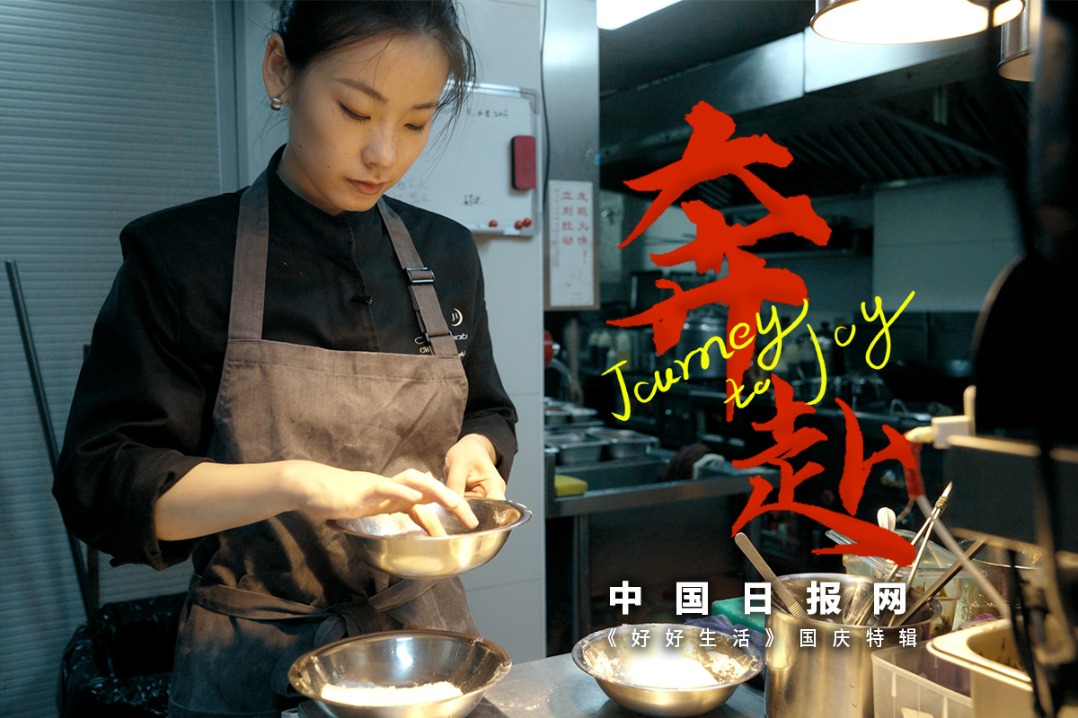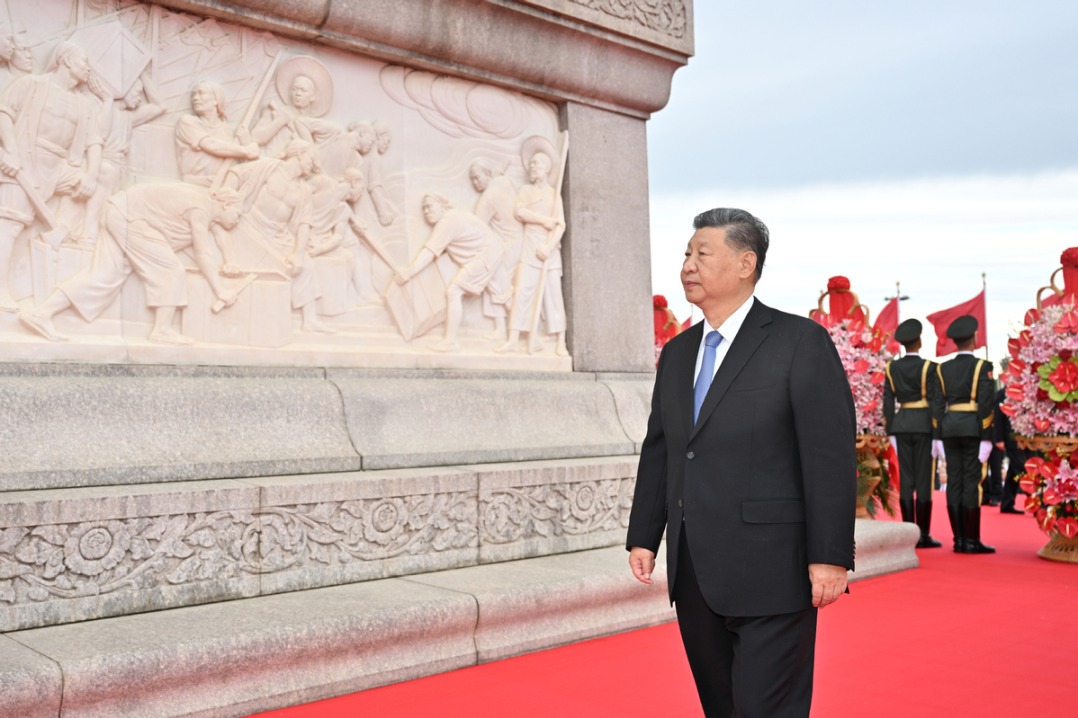Unkempt math wizard has formula for fame
By ZOU SHUO | CHINA DAILY | Updated: 2021-06-11 07:18

Holding a big bottle of water and a bag of steamed buns, and with uncombed hair and a slightly awkward way of speaking, Wei Dongyi does not seem like a typical university teacher.
Wei, an assistant professor at Peking University's School of Mathematical Sciences, recently became an online sensation after netizens found the somewhat shy and unsophisticated man has an extraordinary talent for mathematics.
In a viral video, Wei was asked to give encouragement to high school graduates who were taking the national college entrance exam, or gaokao. He simply replied: "Welcome to Peking University. I don't know what else to say."
Wei said he is a teacher at the university and enrolled there in 2010 without taking the gaokao, as he had performed well in math competitions while in high school.
After the clip was widely viewed, more of his talent for math and his achievements were uncovered.
Wei twice won gold medals at the International Mathematical Olympiad while he was a high school student. As an undergraduate student, he also scored top places in different math competitions, including the S.-T. Yau College Student Mathematics Contest.
He graduated from PKU with a bachelor's degree in mathematics in 2014 and a doctorate in the same discipline in 2018. The subject of mathematics at PKU was ranked highest of all Chinese mainland universities in the latest Global Ranking of Academic Subjects, published by consultancy firm Shanghai-Ranking in May.
Zhang Yonghua, a math teacher at Wei's old high school, believes Wei is a math genius who is a gifted academic researcher. He often found better ways to solve math problems than his teachers, Zhang said.
Zhang told the Paper.cn that Wei once refused an offer from Harvard to study for a PhD, even after the university said they would provide an interpreter for him.
Wei's cousin, Wei Jingzhou, told Zhejiang Daily that Wei Dongyi lives a frugal life, cares a lot about the environment and is not particular about what he eats and wears.
Carrying refilled water bottles and steamed buns is common for Wei Dongyi; and he spends less than 300 yuan ($47) a month in Beijing, though he is not short of money, Wei Jingzhou said.
Wei Dongyi seldom watches TV, does not use social media platforms such as WeChat and Weibo, and likes listening to the radio, the cousin said.
"His favorite thing is to solve math problems, and he is very interested if you talk with him about math."
Wei Dongyi grew up in Jinan, Shandong province. His father, who passed away several years ago, was a mathematics professor at Shandong Jianzhu University, and his mother is an English teacher at the same university.
Peking University's Beijing International Center for Mathematical Research said in a statement recently that apart from his success in math competitions, Wei's research results have been published by many world-renowned mathematics journals. "Mathematic research requires a quiet environment, and we hope all sectors can work together to build the academic environment that is conducive to young researchers to focus on their work," the statement said.
Chinese social media platforms have been flooded with praise and admiration for Wei. Netizens said that talent like Wei offers young people new idols who are an alternative to pop stars.
Qi Chen, an undergraduate student at Tsinghua University, said that although there are many talented people in different fields at top universities like Tsinghua and PKU, it is rare for someone to achieve widespread recognition. "Compared with pop stars, who students may talk about to pass the time, academic idols like Wei are people we admire from the bottom of our hearts and aspire to become," he said.
Zhou Moyan, an undergraduate student at Renmin University of China in Beijing, said she admires Wei for his simple lifestyle and rich inner world. "He is very focused on the thing he is passionate about, which inspires me to work hard in my studies and become more professional in my major," the 22-year-old said.
























